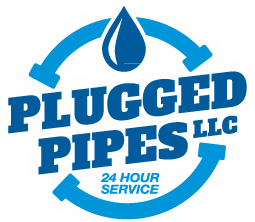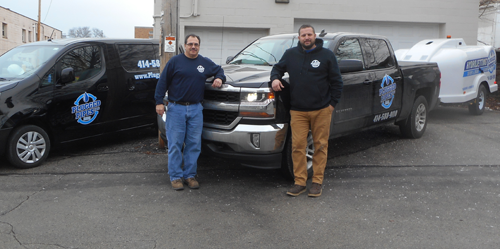Commercial bathrooms are among the busiest areas in any workplace, retail space, or public building. With high foot traffic and continuous use, the plumbing systems in these bathrooms take a significant amount of wear and tear every day. Unfortunately, many business owners don’t think about plumbing maintenance until there’s a major problem—like a clogged toilet or a leaking pipe. Regular maintenance, however, is crucial in preventing such costly issues, ensuring the bathroom runs smoothly and efficiently.
This post explores why routine plumbing maintenance is essential for commercial bathrooms, the benefits it brings, and what businesses can do to keep their plumbing systems in top shape.
1. Why Commercial Bathrooms Need More Frequent Care
Unlike residential bathrooms, which serve a limited number of people, commercial bathrooms are designed to accommodate dozens, sometimes even hundreds, of users daily. With this increased usage, the plumbing fixtures and pipes experience much more strain, leading to faster wear and tear.
Key Issues That Arise in Commercial Bathrooms:
- Toilet Overuse and Clogs: High-use toilets are more prone to clogs, especially when they aren’t maintained properly. Even small blockages can quickly lead to backups.
- Sink Drains and Soap Buildup: Constant handwashing in commercial settings can cause soap and grease buildup in drains, leading to slow drainage and eventual clogs.
- Leaky Faucets or Toilets: Leaks might seem like a small issue, but in a high-traffic bathroom, even minor drips can waste hundreds of gallons of water over time, increasing your water bills significantly.
- Pipe Damage: With constant water flow, the pipes in commercial bathrooms are more susceptible to corrosion, buildup, or damage that can lead to sudden failures.
These issues often develop gradually, making them easy to overlook until they become emergencies. Regular maintenance helps catch these problems early, saving money and reducing the inconvenience of emergency repairs.
2. Preventive Maintenance Plans: A Worthwhile Investment
Proactive maintenance of your commercial plumbing system is an investment that pays off in the long run. A preventive maintenance plan involves scheduled inspections and routine cleanings designed to catch problems before they escalate.
Components of a Good Maintenance Plan:
- Regular Inspections: A professional plumber will inspect your plumbing system regularly for signs of wear, leaks, or other damage. These inspections often include checking for corroded pipes, slow-draining sinks, and any toilet malfunctions.
- Drain Cleaning and Snaking: One of the most common services in a maintenance plan is drain snaking. Snaking prevents buildup and clears any small blockages in toilets, sinks, and other drains, ensuring the system stays clog-free.
- Fixture Maintenance: Faucet and toilet repairs are another important part of routine maintenance. Fixing small leaks or replacing parts before they break down completely can extend the life of your fixtures and reduce water waste.
- Water Pressure Checks: High water pressure can damage pipes over time, while low pressure could indicate a leak or blockage. Regular checks ensure that your system is running optimally.
By sticking to a preventive maintenance plan, businesses can avoid the inconvenience of unexpected breakdowns, keeping the restroom facilities in top condition for employees, customers, and visitors.
3. Spotting Issues Early: When to Call for Professional Help
One of the main benefits of regular maintenance is being able to catch small issues before they turn into major problems. There are several telltale signs that your commercial bathroom plumbing may be headed for trouble, and spotting them early can prevent expensive repairs down the line.
Early Warning Signs to Look Out For:
- Slow Drains: If your sinks or toilets take longer to drain than usual, this could indicate a partial clog somewhere in the system. Don’t ignore slow drains—they can lead to full blockages and backups if left untreated.
- Unusual Odors: Foul smells coming from the drains, toilets, or the restroom in general may suggest a sewage backup or a clog in the system. These issues should be addressed immediately.
- Water Stains on Walls or Floors: Water damage around sinks, toilets, or on bathroom walls is a red flag. It often indicates hidden leaks behind walls or under floors, which can lead to mold growth or structural damage if not repaired.
- Constantly Running Toilets: A toilet that won’t stop running is not only a nuisance but also a major water waster. This could be a sign of a faulty flapper valve or a bigger issue with the plumbing system.
When you spot these issues, it’s essential to call a professional plumber to assess the situation and make necessary repairs. Ignoring these signs can lead to bigger, costlier problems down the road.
4. Benefits of Professional Plumbing Services
While basic maintenance, such as cleaning out drains or fixing a leaky faucet, can sometimes be done in-house, partnering with a professional plumber for routine inspections and more complex services is invaluable. Professional plumbers have the tools and expertise to identify hidden issues, perform thorough cleanings, and ensure the system is functioning optimally.
Advantages of Hiring a Professional:
- Advanced Tools and Equipment: Professionals have access to tools like video inspection equipment that can locate hidden clogs or damage deep within your pipes.
- Expertise in Commercial Systems: Commercial plumbing systems are often more complex than residential systems. A plumber experienced in working with commercial bathrooms understands the unique demands and challenges of these environments.
- Time and Cost Savings: By catching potential problems early, professional plumbers can help you avoid emergency repairs, which often cost more and lead to business disruptions. Regular maintenance also extends the life of your plumbing system, saving you money in the long run.
- Compliance with Regulations: Commercial bathrooms must adhere to local health and safety codes. A professional plumber ensures that your facility meets all necessary standards, helping you avoid fines or legal issues.
Conclusion:
Regular maintenance of commercial bathroom plumbing is not just a best practice—it’s essential for avoiding costly repairs, keeping your bathroom facilities functional, and providing a positive experience for customers and employees. From routine inspections and drain cleanings to timely repairs, proactive plumbing care helps businesses prevent major plumbing emergencies and maintain smooth operations.
If you haven’t scheduled a plumbing inspection recently, now’s the time to do it. Contact Plugged Pipes to learn more about our commercial plumbing maintenance services and how we can help keep your restrooms running efficiently.

